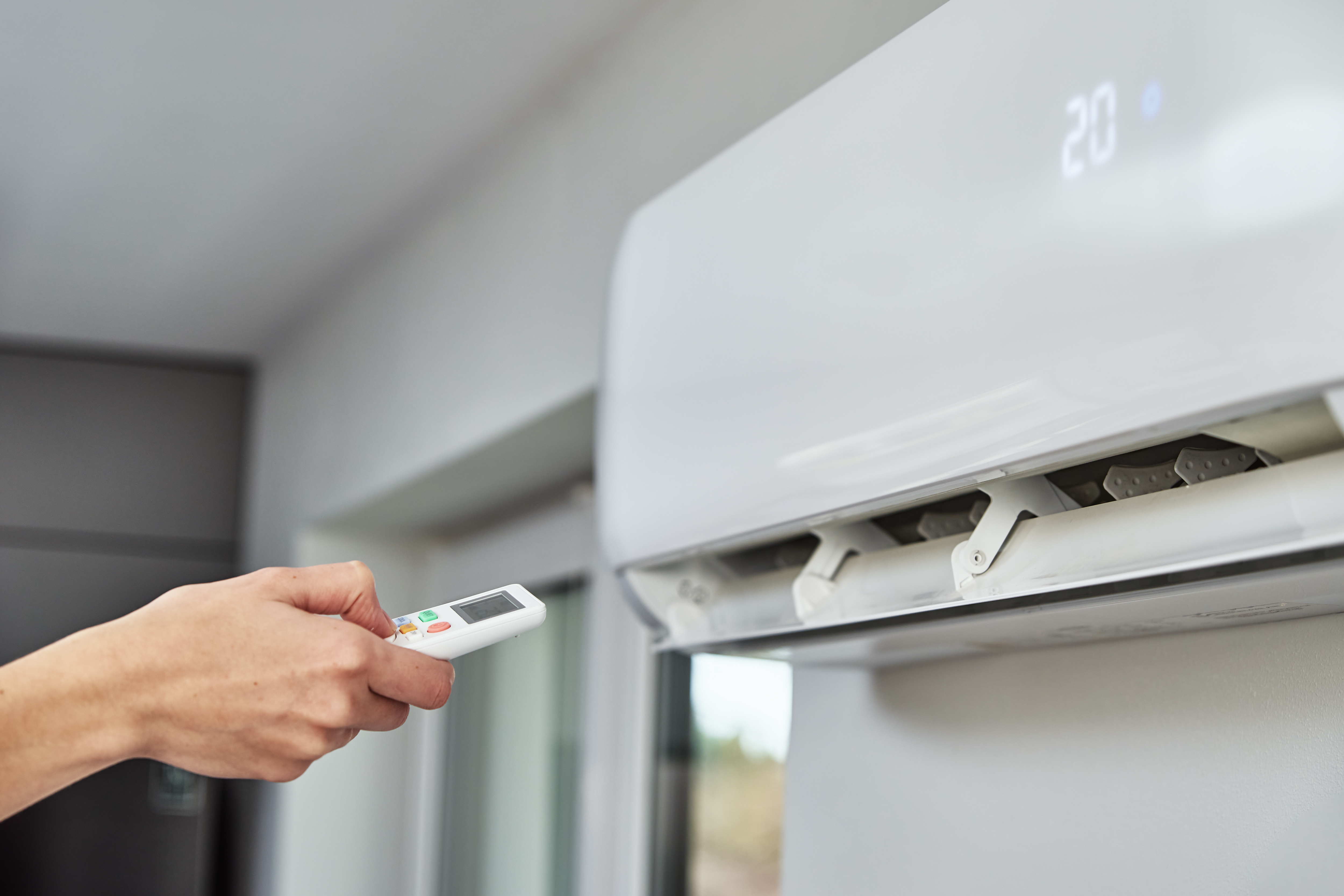
Are you tired of sky-high utility bills and sweltering indoor temperatures during the summer months? With energy costs on the rise, finding an efficient way to keep your home or business cool is more critical than ever. Enter energy efficient air conditioning units—a game-changer for anyone looking to cut costs and reduce their carbon footprint. These modern marvels not only deliver exceptional cooling performance but also come packed with advanced features that make traditional systems look like relics of the past. Curious to know how these units can revolutionize your indoor climate while saving you money?
Energy Efficient Air Conditioning Units - Key Takeaways
-
Energy efficient air conditioners drastically reduce utility bills and environmental impact
-
Modern units offer advanced features like smart thermostats and remote controls
-
Proper sizing and installation are crucial for maximum efficiency and cost savings
-
Understanding energy efficiency ratings helps make informed purchasing decisions
-
Routine maintenance enhances both performance and lifespan of your HVAC system
Benefits of Energy Efficient Air Conditioners
Switching to an energy efficient air conditioner is like upgrading from a flip phone to a smartphone. You're not just getting cooler air; you're investing in a multitude of benefits that make life easier and more comfortable. From putting more money back in your pocket to contributing positively to the environment, energy efficient air conditioners offer an array of advantages that go beyond just cooling.
Firstly, these units can significantly lower your utility bills. Imagine slashing your electricity costs by up to 30% simply by upgrading your air conditioning system. This kind of energy savings means more money for other important things in life, like that vacation you've been dreaming about. Plus, with rising energy costs, an efficient unit is a smart financial move that pays off month after month.
Moreover, energy efficient air conditioners are a boon for the environment. By using less energy, these units help reduce your carbon footprint, making you a responsible global citizen. In a world increasingly focused on sustainability, this is a step in the right direction.
Investing in energy efficient air conditioning also increases the value of your property. Energy-efficient homes are in high demand, and having an upgraded HVAC system can be a significant selling point. Think of it as a future-proof investment that adds value to your home or business.
Understanding Energy Efficiency Ratings
Navigating the world of energy efficiency ratings can feel like deciphering a foreign language. However, understanding these ratings is crucial for making informed decisions about your air conditioning needs.
The Seasonal Energy Efficiency Ratio (SEER) is a key metric that measures the cooling output of an air conditioner relative to its energy consumption. A higher SEER rating indicates better energy efficiency and lower operating costs. For optimal savings, look for units with a SEER rating of 15 or above.
The Energy Efficiency Ratio (EER) provides information on a unit's performance at peak conditions. While SEER measures efficiency over an entire cooling season, EER focuses on the unit's performance during the hottest days. A high EER is particularly important if you live in a region with extreme temperatures.
Energy Star ratings ensure that units meet or exceed government standards for efficiency. Choosing an Energy Star-rated model means you're getting a product that's been vetted for both performance and environmental impact.
Understanding these ratings helps you make cost-effective purchasing decisions. Higher-rated units may have a higher upfront cost, but the energy savings over time can far outweigh the initial investment. It's a balancing act between initial costs and long-term benefits.
Cost Savings of Energy Efficient Air Conditioning Units
The cost savings associated with energy efficient air conditioning units are too significant to ignore. By opting for a high-efficiency model, you can reduce your electricity usage and enjoy lower monthly energy bills.
The initial investment in an energy efficient unit might be higher than a standard model, but don't let that deter you. These units are designed for long-term savings, meaning the reduced energy consumption over the years will more than offset the upfront cost. It's like buying in bulk to save money in the long run.
Many utility companies offer rebates and incentives for purchasing energy efficient models. These perks can significantly reduce the initial cost, making the decision to upgrade even more appealing. Imagine getting money back just for making a smart, eco-friendly choice!
Additionally, high-efficiency units often require less maintenance, leading to reduced costs over their lifespan. Their reliability and durability mean fewer repair bills, adding another layer of savings.
The savings from lower energy consumption can also offset the initial higher cost of these units. Over the lifespan of the air conditioner, you could save hundreds or even thousands of dollars. It's an investment in your financial future as well as your comfort.
Installation Tips for Energy Efficient Air Conditioners
Installing your energy efficient air conditioner properly is just as important as choosing the right unit. A professional installation ensures that your system operates at peak efficiency, giving you the best return on your investment.
One of the first considerations is placement. Positioning your unit away from direct sunlight can improve its efficiency significantly. After all, you wouldn't wear a heavy coat in the sun, so why make your AC work harder than it needs to?
Insulating ductwork is another critical step. Proper insulation reduces energy loss and improves cooling effectiveness. Think of it as wrapping your unit in a cozy blanket that keeps the cool air where it belongs—in your home.
Regular maintenance checks are essential for keeping your unit operating efficiently. These checks can catch minor issues before they become costly repairs, ensuring your system runs smoothly year-round.
Correct sizing and installation prevent unnecessary strain on the system. An improperly sized unit will either overwork or short cycle, both of which waste energy and reduce lifespan. Consulting with a professional can help determine the right size for your space, ensuring you get the most bang for your buck.
Choosing the Right Size Unit for Your Space
Choosing the right size air conditioning unit is crucial for maximizing efficiency and comfort. A unit that's too small will struggle to cool your space, leading to increased energy usage and higher costs. Conversely, an oversized unit will cycle on and off too frequently, wasting energy and wearing out faster.
To find the perfect fit, you'll need to consider the square footage of your space and its layout. A professional assessment can help determine the ideal unit size for your needs, taking into account factors like room size, insulation, and local climate.
Correctly sized units provide consistent cooling, enhancing your indoor comfort. They maintain a steady temperature without constant adjustments, ensuring you stay comfortable with minimal effort.
For those with central air systems, choosing the right size is even more critical. An improperly sized central system can lead to uneven cooling, leaving some areas of your home too hot or too cold. A professional assessment can help avoid these pitfalls.
In summary, the right size unit is key to achieving the perfect balance between efficiency and comfort. It ensures your system operates at its best, keeping you cool without breaking the bank.
Maintaining Energy Efficiency in Your HVAC System
Keeping your HVAC system running efficiently is like maintaining a car—it requires regular attention and care. Routine maintenance is the secret sauce that keeps your air conditioning system in top shape, ensuring you get the most out of your investment.
One of the simplest yet most effective maintenance tasks is cleaning or replacing filters. Dirty filters restrict airflow, forcing your system to work harder and consume more energy. By keeping filters clean, you improve airflow and reduce energy consumption, much like removing a roadblock from a busy street.
Sealing ducts is another crucial step. Leaky ducts can lead to significant energy loss, reducing your system's overall performance. By sealing these leaks, you ensure that the cool air reaches its intended destination, keeping your space comfortable and your bills low.
Smart thermostats are a game-changer for monitoring and adjusting energy usage. These devices allow you to control your HVAC system remotely, ensuring you're not wasting energy when cooling isn't needed.
Routine inspections catch potential issues early, maintaining energy efficiency. By addressing problems before they escalate, you prevent costly repairs and prolong the life of your system.
Frequently Asked Questions
Can energy efficient air conditioning units really save me money on my energy bills?
Yes, energy efficient air conditioning units can save you money on your energy bills in the long run. These units are designed to use less energy while still providing effective cooling, resulting in lower electricity costs.
How do I know if an air conditioning unit is energy efficient?
Look for the Energy Star label when shopping for air conditioning units. Energy Star certified products meet strict energy efficiency guidelines set by the U.S. Environmental Protection Agency and can help you save money on your energy bills.
Are energy efficient air conditioning units more expensive to purchase?
While energy efficient air conditioning units may have a higher upfront cost, the long-term savings on energy bills can offset the initial investment. Plus, many utility companies offer rebates or incentives for purchasing energy efficient appliances.
Do energy efficient air conditioning units cool a room as effectively as traditional units?
Yes, energy efficient air conditioning units can cool a room just as effectively as traditional units. They are designed to provide the same level of cooling while using less energy, making them a more environmentally friendly and cost-effective option.
How can I maximize the energy efficiency of my air conditioning unit?
To maximize the energy efficiency of your air conditioning unit, make sure to regularly clean or replace filters, seal any leaks in ductwork, and set your thermostat to a higher temperature when you're away from home. Additionally, consider using a programmable thermostat to adjust the temperature based on your schedule.
